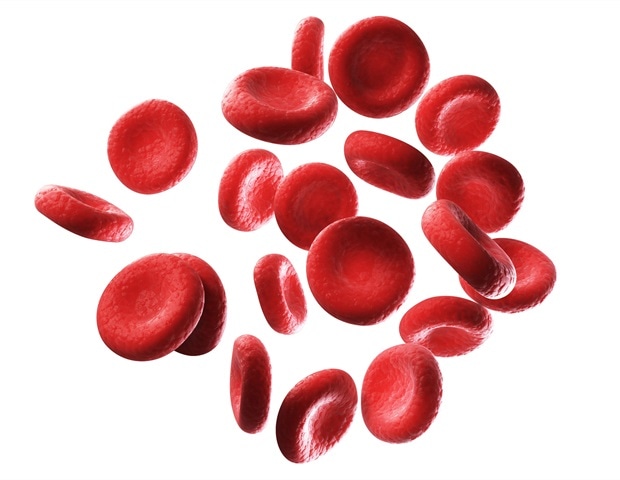Autoimmune Blood Tests: Types and Interpreting Results
:max_bytes(150000):strip_icc()/GettyImages-1216550793-43ee200abb2f4b668fffe42f721a8b11.jpg)
There are different autoimmune blood tests that aid in the diagnosis of autoimmune diseases. Autoimmune diseases are those in which the immune system attacks normal cells and tissues with inflammation.
Some of the most common autoimmune diseases include:
Some of these tests detect signs of inflammation or increases in proteins (like ferritin) that are hallmarks of autoimmunity. Other detect substances called autoantibodies that direct the immune assault. There is no single test that can diagnose the over 80 types of autoimmune diseases.
This article describes the various blood tests that may be ordered to help diagnose an autoimmune disease. It explains how they are interpreted and what information each can provide.
Verywell / Michela Buttignol
C-Reactive Protein (CRP)
The C-reactive protein (CRP) test is used to measure the level of a protein that is produced by the liver and released into the bloodstream in response to inflammation.
Increased CRP levels can provide evidence of inflammation that commonly occurs with autoimmune diseases as well as infections, cancer, and other diseases. The CRP is important because the absence of inflammation could exclude autoimmunity as a cause.
Interpretation of CRP levels is as follows:
- Less than 0.3 mg/dL: This is considered normal for most healthy adults.
- 0.3 to 1.0 mg/dL: Mild elevation can be seen with obesity, pregnancy, depression, diabetes, common cold, gingivitis, periodontitis, sedentary lifestyle, smoking, and genetic polymorphisms.
- 1.0 to 10.0 mg/dL: Moderate elevation indicates systemic inflammation, such as occurs with autoimmune diseases and diseases like cancer, heart attack, pancreatitis, and bronchitis.
- More than 10.0 mg/dL: Marked elevation generally signals an acute infection, systemic vasculitis, or major trauma.
- More than 50.0 mg/dL: Severe elevation may be caused by severe bacterial infections or sepsis.
Erythrocyte Sedimentation Rate (ESR)
The erythrocyte sedimentation rate (ESR) test measures how quickly erythrocytes (red blood cells) collect at the bottom of a test tube. Normally, RBCs settle slowly. A faster-than-normal rate generally indicates inflammation in the body.
The normal range for ESR measured in millimeters per hour (mm/hr) is:
- Infants: 0 to 2 mm/hr
- Children: 0 to 10 mm/hr
- Males under 50: 0 to 15 mm/hr
- Males over 50: 0 to 20 mm/hr
- Females under 50: 0 to 20 mm/hr
- Females over 50: 0 to 30 mm/hr
As with the CRP test, a high ESR could indicate an autoimmune disease or other inflammatory conditions. On the flip side, a normal ESR may be an indication that autoimmunity is not involved.
Antinuclear Antibodies (ANA)
Antibodies are proteins your immune system produces to fight foreign agents like viruses and bacteria. On the flip side, autoantibodies are proteins produced by the immune system that inappropriately attack healthy cells.
Antinuclear antibody (ANA) is one type of autoantibody that attacks the nucleus (center) of cells.
The ANA test is primarily used to diagnose lupus but may also indicate other autoimmune diseases like rheumatoid arthritis, scleroderma, or Sjögren’s syndrome.
An ANA result is negative or positive based on the concentration of the autoantibodies in a sample of blood (referred to as the titer). Titers are reported in ratios, most often 1:40, 1:80, 1:160, 1:320, and 1:640. Some, but not all labs will report a titer of 1:160 as positive.
A negative ANA test means no autoantibodies were detected and generally excludes autoimmunity as a cause. However, a positive ANA test doesn’t necessarily indicate an autoimmune disease. Up to 15% of people can have a positive low-titer ANA without any autoimmune disease.
ANA Accuracy in Diagnosing Lupus
About 95% of people with lupus have a positive ANA test result. Your healthcare provider may order the test if you have signs of lupus, including a butterfly-shaped rash on the cheeks and nose, hair loss, mouth or nose sores, and fingers that turn white or blue when cold or stressed (Raynaud’s syndrome).
Ferritin
Ferritin is a protein produced by the liver that the body uses to store iron inside of cells until it is ready to be used. High ferritin levels (hyperferritinemia) can be a sign of inflammatory diseases, infections, or cancer. It may also be a sign of autoimmune disease.
With autoimmunity, autoantibodies can sometimes destroy red blood cells, causing them to release excess iron in the bloodstream. This excessive release of iron can overwhelm the body’s storage capacity, causing the liver to secrete more ferritin in an effort to rein in the freely circulating mineral.
A similar situation can occur if the liver is directly attacked by an autoimmune disease, such as in people with lupus or autoimmune hepatitis.
Normal ranges of ferritin measured in nanograms per milliliter of blood (ng/mL) include:
- Adult males: 20 to 250 ng/mL
- Adult females 19 to 39 years: 10 to 120 ng/mL
- Adult females 40 years and over: 12 to 263 ng/mL
Anything over these values may be suggestive of an autoimmune disease.
Anti-Cyclic Citrullinated Peptide (Anti-CCP) Antibodies
Anti-cyclic citrullinated peptide (anti-CCP) antibodies are another type of autoantibody associated with rheumatoid arthritis. While specific to rheumatoid arthritis, the anti-CCP test is not a particularly sensitive one.
With a sensitivity of roughly 70%, the test will return a false-negative result in three of every 10 tests. On the other hand, it has a specificity of 96%, meaning that a positive result is almost always diagnostic of rheumatoid arthritis.
Anti-CCP results are described as negative or positive based on international units per milliliter of blood (IU/mL):
- Negative: Less than 20 IU/mL
- Positive: 20 IU/mL and over
The interpretation can vary from one lab to the next.
Rheumatoid Factor (RF)
The rheumatoid factor (RF) test detects an autoantibody closely linked to rheumatoid arthritis. The RF autoantibody can also be found with other autoimmune diseases like juvenile arthritis and lupus as well as tuberculosis and certain cancers like leukemia.
RF results are described as negative or positive based either on the titer or IU/mL values:
- Negative (titer): Less than 1:80
- Positive (titer): 1:80 or over
- Negative (value): Less than 15 IU/mL
- Positive (value): 15 IU/mL or over
Despite the RF test’s usefulness in diagnosing rheumatoid arthritis, around 20% of people with the disease have little or no RF in their blood.
Even so, your healthcare provider may be able to diagnose rheumatoid arthritis by comparing the RF and anti-CCP test results, as follows:
- Positive anti-CCP and positive RF: You likely have rheumatoid arthritis.
- Positive anti-CCP and negative RF: You may be in the early stages of rheumatoid arthritis or will develop it in the future.
- Negative anti-CCP and negative RF: You are unlikely to have rheumatoid arthritis.
What Is the ELISA Test?
The enzyme-linked immunosorbent assay (ELISA)—sometimes referred to as the EIA—is a technology used to detect antibodies. It can be engineered to detect not only specific antibodies but also specific autoantibodies. ELISA technology is what “powers” the ANA, RF, and anti-CCP antibody tests.
Immunoglobulin A (IgA)
Antibodies are also known as immunoglobulins. There are three main types: immunoglobulin A (IgA), immunoglobulin G (IgG), and immunoglobulin M (IgM). Of the three, IgA—or specifically the lack of IgA—may indicate an autoimmune disease.
IgA is found in the nose, airways, digestive tract, ears, eyes, and vagina as well as saliva, tears, and blood. In total, between 10% and 15% of the antibodies in your body are IgA antibodies.
A small number of people do not make IgA antibodies, referred to as selective IgA deficiency. The cause of selective IgA deficiency is poorly understood but is largely thought to be inherited.
People with selective IgA deficiency are not only at higher risk of allergies and infections but are more likely to have autoimmune diseases like rheumatoid arthritis, lupus, celiac disease, or inflammatory bowel disease.
Selective IgA is diagnosed with an immunoglobulin blood test that measures how much of each antibody type is found in your blood.
Normal IgA values measured by milligrams per deciliter of blood (mg/dL) vary by a person’s age:
- 0-5 months: 7-37 mg/dL
- 5-9 months: 16-50 mg/dL
- 9-15 months: 27-66 mg/dL
- 15-24 months: 36-79 mg/dL
- 2-4 years: 27-246 mg/dL
- 4-7 years: 29-256 mg/dL
- 7-10 years: 34-274 mg/dL
- 10-13 years: 42-295 mg/dL
- 13-16 years: 52-319 mg/dL
- 16-18 years: 60-337 mg/dL
- Over 18 years: 61-356 mg/dL
Selective IgA deficiency may be diagnosed when IgA falls significantly below these reference values. In some cases, there may be no IgA detected at all.
Routine Blood Tests
Routine blood work is also a big part of diagnosing autoimmune diseases. Some of the common blood tests your healthcare provider may order include:
- Basic metabolic panel or comprehensive metabolic panel: These tests measure your body’s metabolism, detecting ranges of electrolytes and minerals in your blood. These measurements provide crucial data about how well different organs are functioning and can signal problems with your pancreas, liver, heart, or kidneys. Abnormal results can signal problems like type 1 diabetes and autoimmune hepatitis.
- Complete blood count: This test can detect abnormalities in red or white blood cells or clotting problems. Abnormal blood cell counts are common in diseases like SLE.
- Coagulation studies like activated partial thromboplastin time and prothrombin time: These tests check the ability of your blood to clot, and can help detect disorders like antiphospholipid syndrome.
Several other, more routine tests can detect inflammation, but abnormal levels in these tests may not necessarily be a sign of autoimmune disease, including:
- Fibrinogen: 200 to 400 mg/dL
- Haptoglobin: 410 to 1,650 mg/L
- Albumin: 3.4 to 5.4 g/dL
A variety of issues can cause false positive or false negative tests. These include taking certain medications, recent acute illness, injury, recent surgery, and lab error. Interpretation of test results is done with consideration of your symptoms and overall health. Often, tests for autoimmune disease are repeated to see patterns over time—and a test result that doesn’t seem right will usually be repeated.
Less Common Autoimmune Tests
To make a more accurate diagnosis, a number of blood tests target specific antibodies or autoimmune markers. Some specific antibody tests that your healthcare provider may recommend include:
- Anti-double-stranded DNA (lupus)
- Extractable nuclear antigen (lupus, Sjogren’s systemic sclerosis, inflammatory myositis, mixed connective tissue disease)
- Anti-signal recognition particle tests (inflammatory myositis)
- Anti-neutrophil cytoplasmic antibody (granulomatosis with polyangiitis, eosinophilic granulomatosis with polyangiitis, inflammatory bowel disease)
- Complement complexes (lupus)
- Cryoglobulins (Raynaud’s syndrome)
- Lupus anticoagulant, anti-cardiolipin, or anti-phospholipid autoantibodies (lupus, antiphospholipid syndrome)
Summary
Common blood tests used to diagnose autoimmune diseases may detect markers of autoimmunity (like the CRP, ESR, ferritin, and IgA tests) or autoantibodies associated with autoimmunity (like ANA, RF, and anti-CCP antibody tests).
There is no single blood test that can diagnose any autoimmune disease on its own.
link






